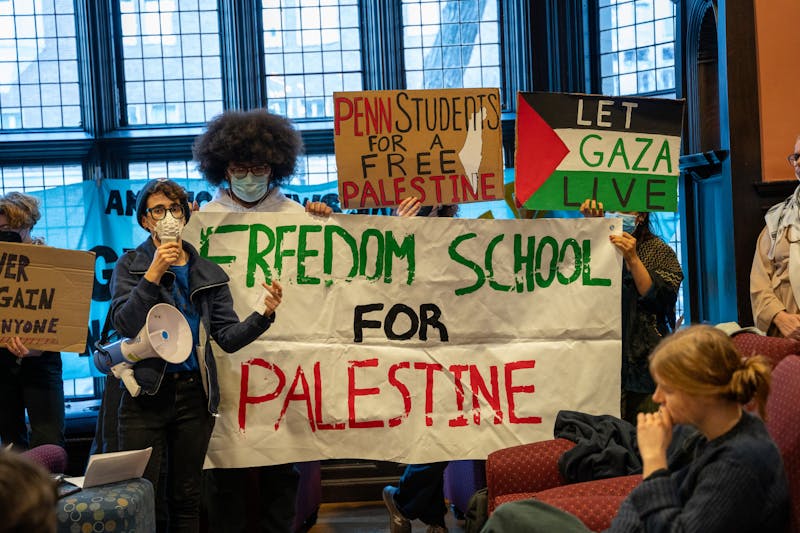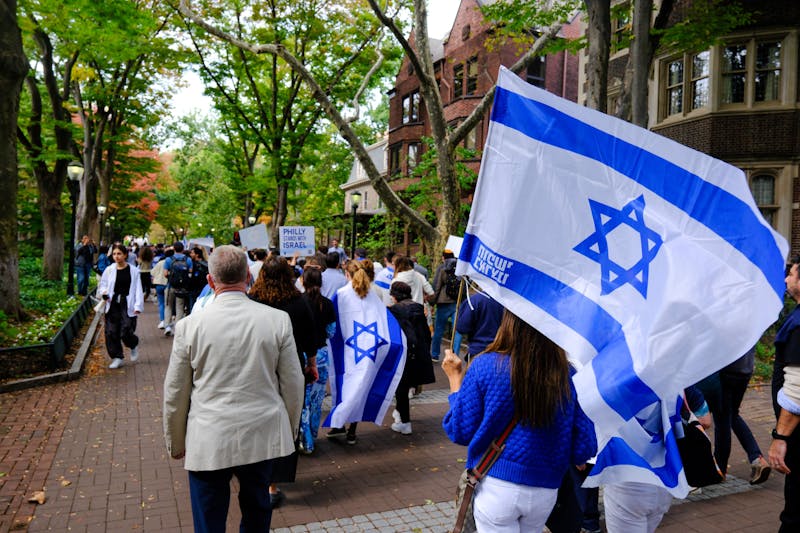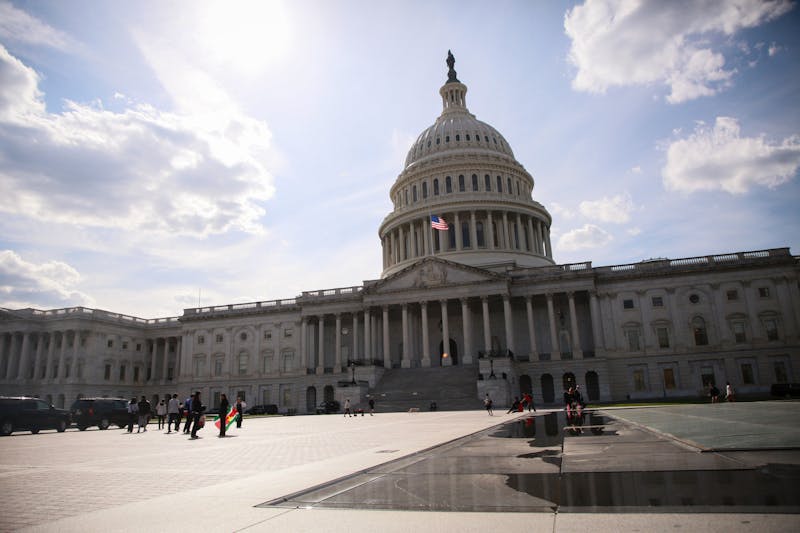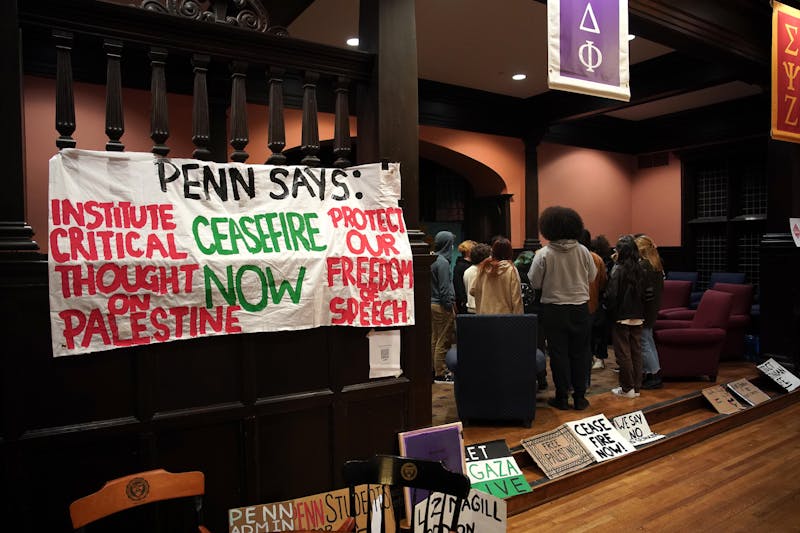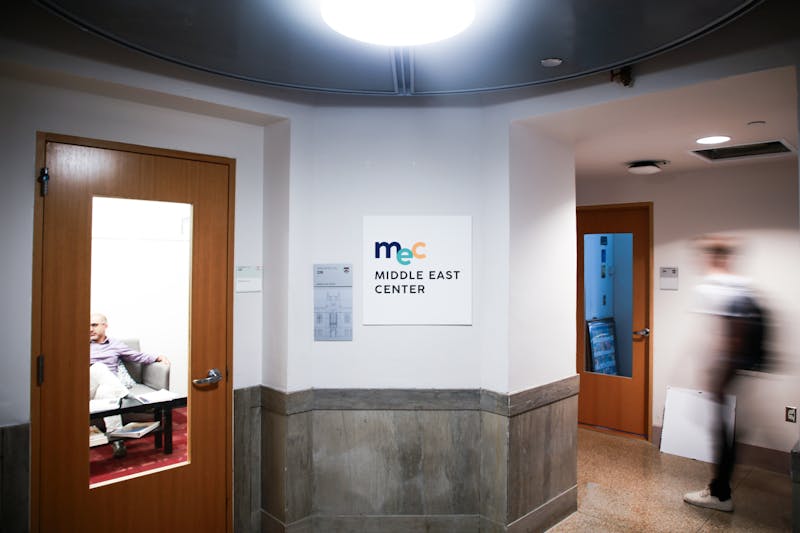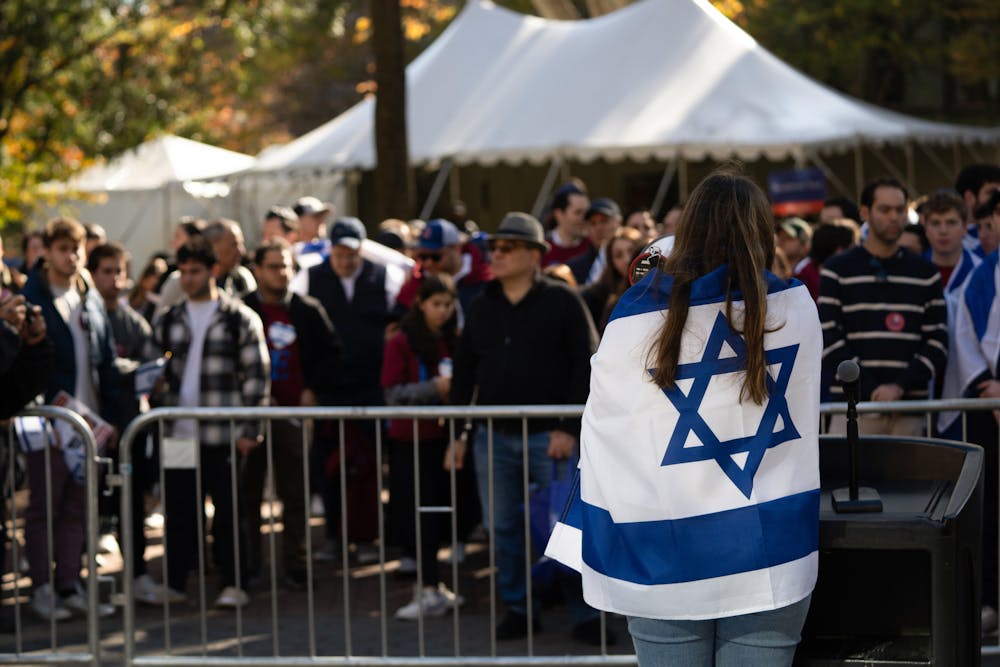
Penn faculty members organized a solidarity mission to Israel earlier this month, prompting mixed reactions from Penn community members.
The three-day trip, which aimed to offer “friendship and support,” began on Jan. 2 and was organized independently from the University, according to a press release. Over the course of three days, a group of approximately 30 Penn faculty members met with academics, Penn alumni, and political leaders, including President of Israel Isaac Herzog.
A University spokesperson declined to comment on the mission.
Led by Professor of Psychology Michael Kahana and Professor of Cinema and Media Studies Peter Decherney, the itinerary included a visit to the Kfar Aza kibbutz — one of the locations where the Oct. 7 Hamas attacks on Israel occurred — and conversations with survivors.
“Academic knowledge communities transcend wars and political conflict," Decherney wrote in the press release. "We wanted to do what we do often: engage with our colleagues and learn from each other’s experience."
The trip was funded by multiple Penn-affiliated sponsors, including Penn Hillel.
“We were happy to help create an opportunity for these faculty to find community with one another, to show solidarity with their Israel peers, and to return to campus and connect with those Jewish students who seek their support,” Penn Hillel Executive Director and Rabbi Gabe Greenberg said.
Professor of Law and Philosophy Claire Finkelstein, who attended the trip, described the experience as both “difficult and uplifting.”
“It was unlike anything that I was prepared for, and I study the law of war,” Finkelstein said. “The entire country was touched in some way by the events of Oct. 7 and the ensuing war, and it was a powerful demonstration of just how extreme that impact was.”
However, the mission also sparked controversy among Penn community members.
History and Sociology of Science professor and former director of the Middle East Center Harun Küçük described the timing of the trip and the administration’s lack of a statement on it as “alienating” for the Penn community.
“I think maybe there was a window of time when such an act of solidarity would have made sense. But things have moved on since then — right now, we are talking about Israel being tried for genocide,” Küçük said. “What does it mean to go and extend a message of solidarity on behalf of the Penn community?”
Küçük compared the Penn administration’s lack of comment on the trip to its multiple statements on the Palestine Writes Literature Festival, which explicitly separated the event from the University.
“The reaction to one and non-reaction to the other makes me think somebody’s lost their sense of proportion,” he said.
2010 Wharton graduate and Penn Alumni for Palestine member Aseel Moosa also denounced the trip in a Jan. 5 email to Interim Penn President Larry Jameson and eleven Penn deans. Her email called on the administration to clarify the University’s involvement with the trip.
“The timing of the trip was just incredibly wrong and insensitive at a time when Israel was accused of genocide in the International Court of Justice,” Moosa wrote. “We demand for the president and the deans to issue a formal response to clarify if this was an official delegation, or just a bunch of faculty getting together and creating this trip.”
A professor of Near Eastern Languages and Civilizations, who requested anonymity due to fear of retaliation, also questioned how the trip was funded, calling it “an appalling trip to stand in solidarity with a powerful aggressor.”
“Are we now allowing foreign states to use our faculty as propaganda after we have completely succumbed to corrupt donor pressure and the threats of interest groups?” the professor asked.
The trip was the first mission by faculty from an American university to Israel since the Oct. 7 Hamas attack, according to the press release.
The Daily Pennsylvanian is an independent, student-run newspaper. Please consider making a donation to support the coverage that shapes the University. Your generosity ensures a future of strong journalism at Penn.
Donate







